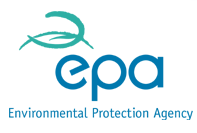RSS feed source: Environmental Protection Agency--Air Quality
Today, U.S. Environmental Protection Agency announced The MetroHealth System and The Trust for Public Land in Ohio will receive $17,191,775 and $3,000,000 respectively to help disadvantaged communities tackle environmental and climate justice challenges through projects that reduce pollution, increase community climate resilience, and build community capacity. Made possible by President Biden’s Inflation Reduction Act, the Community Change Grants Program is the single largest investment in environmental and climate justice in history. The funding announcement today is the first of nearly $2 billion from the program that was designed based on community input to award grants on a rolling basis.
These two groups and other selected applications are the first to come under the Community Change Grants Program’s rolling application process. Informed by robust stakeholder engagement and community feedback, the innovative rolling application process will ensure that applicants have ample time to prepare and take advantage of this historic resource. The Community Change Grants Program notice of funding opportunity, administered through EPA’s Office of Environmental Justice and External Civil Rights, is still accepting applications through November 21. EPA will continue to review applications and announce selections on a rolling basis.
“Our ability to deliver tangible results for communities depends on listening to them and
Click this link to continue reading the article on the source website.
